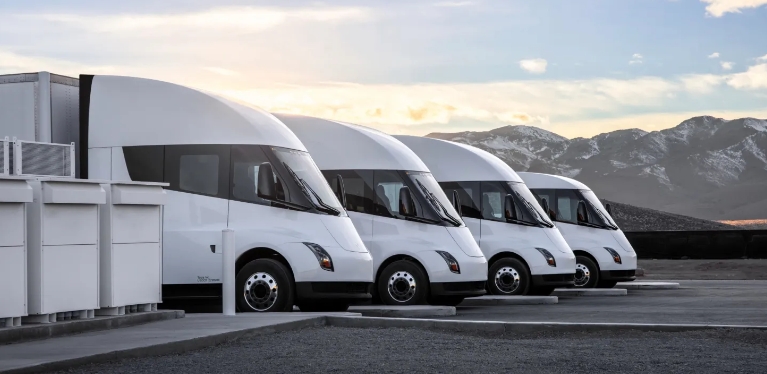
Tesla is planning to ramp up Tesla Semi deliveries to PepsiCo, its main customer, ahead of the electric semi truck’s volume production.
The Tesla Semi program has seen some fairly serious delays.
It was first unveiled in 2017 and it was supposed to come to production in 2019. Instead, it came to production in late 2022 and it has been in extremely limited production since.
For over a year, Tesla Semi was only used internally and by Pepsico.
However, we have seen the electric vehicle in the hands of several more customers recently.
Last month, we reported on a Tesla Semi being spotted used by Martin Brower and one by food distribution giant Sysco.
Earlier this month, we also learned that Walmart and Costco both got their hands on the Tesla Semi to test it recently.
However, Tesla is still only producing the electric truck in low volume as it expands Gigafactory Nevada to build a new high-volume production line.
Tesla recently said that it now plans for the electric truck to enter volume production late next year and start wider customer deliveries in 2026.
In the meantime, Pepsico remains Tesla’s main customer for the electric truck.
Dan Priestley, head of the Tesla Semi program, went to the ACT Expo yesterday to discuss the status of the program.
The engineer quickly addressed the previously mentioned delays with Tesla Semi (via ACT):
Now, I know, as alluded to, there’s been some questions on timing. But Tesla has a specialty and that is turning the impossible into merely late. I think that there are some narratives that seem to think that electric heavy trucking is still impossible. You might hear someone say that it’s really hard. Well, guess what, it is really hard. We’ve been doing it, but it is absolutely worth doing, and we do not enter this industry lightly.
Tesla is not alone in the electrification of heavy-duty trucking, but the automaker claims to have an advantage with a dedicated electric platform, which is not always the case, especially with legacy truck makers.
Priestley commented on the Tesla Semi being built to be electric from the ground up:
“There’s no wasted space. The powertrain and the vehicle work hand in hand. We saw this on the light-duty side and we’re seeing it all over again on the heavy-duty side.”
With the Tesla Semi’s 500-mile range and megawatt charging, the engineer insists that customers are able to simply swap a diesel truck for an electric one with Tesla’s solution:
“What this does is it unlocks the operational equivalence between diesel and electric. There’s none of these ratios that you need extra electric trucks do the same amount of work that diesels do. They can swap one for one in operations.”
Priestley reiterated that Tesla is currently seeing an average of 1.7 kilowatt hours per mile with Tesla Semi on the Pepsico fleet and that’s with the company carrying heavy loads of brevages.